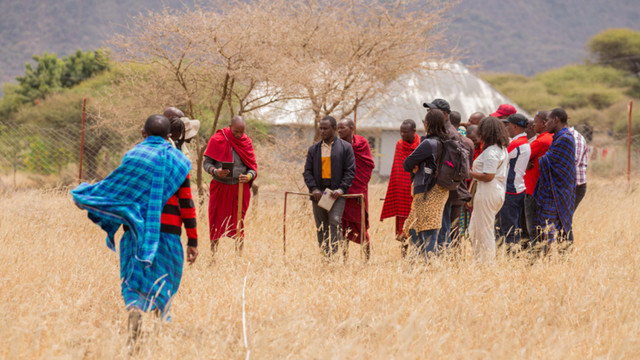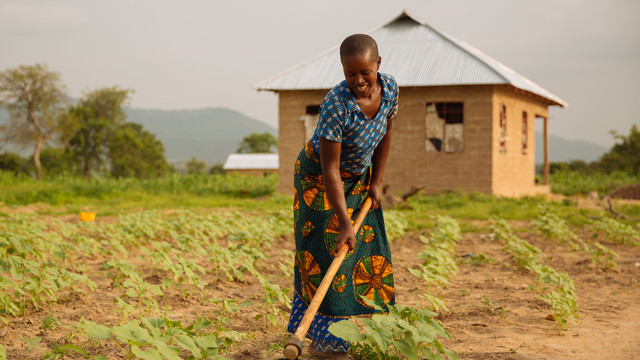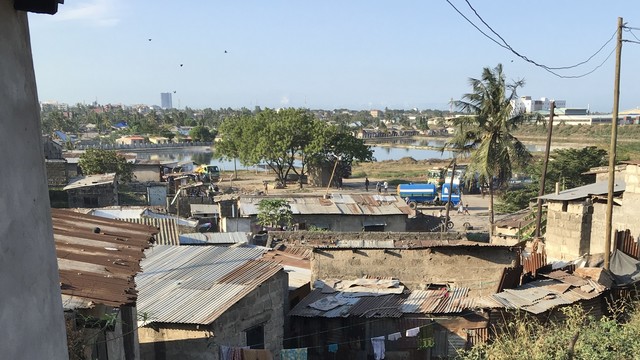Electricity supplies in Tanzania: putting people first
With the energy sector expanding, how can the perspectives of local communities and end users shape future power?


Sixty-two-year-old Elizabeth Mukwimba has a solar-powered lighting system. She no longer has to buy expensive kerosene and has been able to use the savings to re-roof her house (Photo: Russell Watkins/Department for International Development)
At a workshop that I attended in Tanzania a broad range of stakeholders came together to look at electricity provision (both on and off-grid). These sector experts and other interested groups, including service providers, policymakers, regulators, development partners and civil society organisations, were presented with a simple problem.
In Tanzania, the vast majority of customers are off-grid and have faced an influx of poor quality and sometimes fake energy products, including solar lighting and home power systems.
Could the experts spot which of two solar panels was a fake? I like to think that I'm not one to be taken in easily, but in this I, along with most of the experts, was confounded.
In fact, most of us were taken in by the better-quality label on the fake product. Our perceptions were shaped by a simple marketing tool.

The reality is that the fakes are not so easy to spot. This impacts both off-grid customers and households with grid power that suffer from frequent unplanned power cuts. And this lack of access to electricity, whether on or off-grid, has far-reaching consequences.
Why does electricity matter?
A reliable electricity service raises life chances. Radio, television, mobile phones and the internet give people opportunities to acquire knowledge and communicate.
Electricity for lighting means that people are able to study or work at home after dark. Productivity is increased as water can be pumped for crops and time spent processing food is reduced. Medicines can be kept cool.
In short, electricity is a stepping stone to social change and economic growth.
Investigating users' views
With so much at stake, it's vital to understand where to direct resources to achieve maximum benefit.
Before the workshop Tanzanian NGO Twaweza carried out a survey of 2,000 households. It found that, like the experts at the workshop, householders often lack understanding about what products to buy. With little access to credit they frequently go for cheaper imitations of well-known brands. And when these go wrong, they lose trust in the service providers.
A quarter of respondents in the survey had a grid connection and three quarters (76 per cent) of these felt some co-planning of power cuts with communities would improve their trust in the energy companies.
76 per cent of [survey respondents] felt some co-planning of power cuts with communities would improve their trust in the energy companies
Clearly end users feel that there is room for improvement. So, what's to be done?
The focus of service providers and governments is most often on infrastructure and expanding grids so that the supply of electricity goes up. But there's another way to look at this problem and that starts with the demand side.
Not more power, but better
It's not a question of getting more electricity (though that might be a good thing). It's more about how that electricity is put to use.
This involves a 'people-centred approach' which starts by examining end users' perceptions and looking at their needs and wants. In Tanzania, the Energy Change Lab is doing just that. Using an accountability framework that is relatively new to the energy sector involves exploring four key aspects:
- How can useful information be effectively shared between energy providers and end users?
- How can customers' needs, views and feedback be adequately responded to?
- How can rules designed to improve service be enforced?, and
- How can citizens be empowered to engage with policymakers and companies?
People-centred solutions
Based on this framework, several interesting problem-solving models that have already been used in other countries are now being explored.
For these to work in Tanzania they must take account of the local context. For example, promising customers access to services within unrealistic timeframes will generate ill will; and there is no point in delivering more solar products where people don't trust them.

Dialogue between customers, service providers, and regulators needs strengthening to help collectively solve these issues. Customers also need more useful, accessible, and transparent information to make informed choices – along with confidence that when they do have an issue, there are feedback mechanisms that work.
Changing people's perceptions takes time, but there is no doubt that electricity service users in Tanzania are no longer willing to be taken in by providers of sub-standard products and services. Tanzanians are pushing for better power.
Ben Garside (ben.garside@iied.org) is senior researcher in the Shaping Sustainable Markets research group. He is a specialist in information and communications technologies for sustainable development.
About the author




